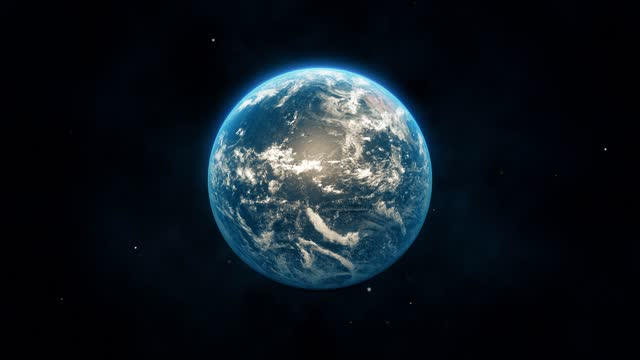Earth's Incredible Transformation.
In the beginning, Earth was nothing but a barren rock floating in the vast emptiness of space. It was a desolate place, devoid of life and any sign of vitality. But over time, through a series of incredible events and a dash of luck, Earth transformed into the beautiful and diverse planet we know today.
The story of Earth began roughly 4.6 billion years ago, when it first formed from a cloud of gas and dust. The early Earth was a harsh and unforgiving place, constantly bombarded by asteroids and comets that pummeled its surface and caused massive craters. But amidst all the chaos, something miraculous was happening.
As the Earth cooled, a solid crust began to form on its surface. At first, this crust was nothing more than a thin layer of rock, but over millions of years, it grew thicker and more stable. This allowed for the emergence of the first oceans, which formed as water vapor in the atmosphere condensed and rained down onto the surface.
The oceans were a game-changer for Earth. They created a stable environment where life could thrive, and they played a crucial role in shaping the planet's climate and weather patterns. As the oceans grew, they absorbed carbon dioxide from the atmosphere, which helped to regulate the planet's temperature and prevent it from becoming too hot or too cold.
But despite all these positive developments, life on Earth was still in its infancy. It would be billions of years before the first signs of life would appear. And when they did, they would revolutionize the planet in ways no one could have predicted.
The first life on Earth was simple and primitive, consisting of single-celled organisms that lived in the oceans. These organisms were tiny and barely visible to the naked eye, but they were the foundation upon which all life on Earth would eventually be built.
Over time, these simple organisms began to evolve and adapt to their environment. They developed new features and capabilities, such as the ability to photosynthesize and produce oxygen. And as they did so, they transformed the planet in profound ways.
The emergence of photosynthetic organisms was particularly significant. These organisms were able to harness the energy of the sun to convert carbon dioxide into oxygen, which they released into the atmosphere. This process not only created the oxygen-rich atmosphere that we breathe today, but it also helped to regulate the planet's temperature and create the conditions necessary for complex life to evolve.
As life on Earth continued to evolve, it became increasingly diverse and complex. New species emerged, each with their own unique characteristics and adaptations. Some species became predators, while others became prey. Some developed the ability to fly, while others took to the oceans or the land.
And as the diversity of life on Earth grew, so too did its impact on the planet. Animals began to shape the environment in new ways, altering landscapes and ecosystems to suit their needs. Trees and other plants evolved, creating lush forests and providing habitats for countless other species.
But perhaps the most significant impact that life had on Earth was the emergence of humans. Humans were unique in that they possessed the ability to think, reason, and communicate in complex ways. They were able to create tools and technologies, to build cities and civilizations, and to explore and understand the world around them.
But with this newfound power came great responsibility. Humans began to reshape the planet in ways that were often detrimental to the environment. They cleared forests, polluted rivers and oceans, and emitted vast amounts of greenhouse gases into the atmosphere, causing global temperatures to rise.
The impact of human activity on the planet has been immense, and it is still unfolding today. Climate change, deforestation, and biodiversity loss are just a few of the challenges that we face as a species. But despite these challenges, there is still hope.
Humans



Comments
Post a Comment